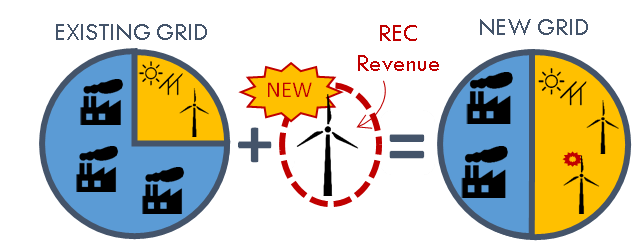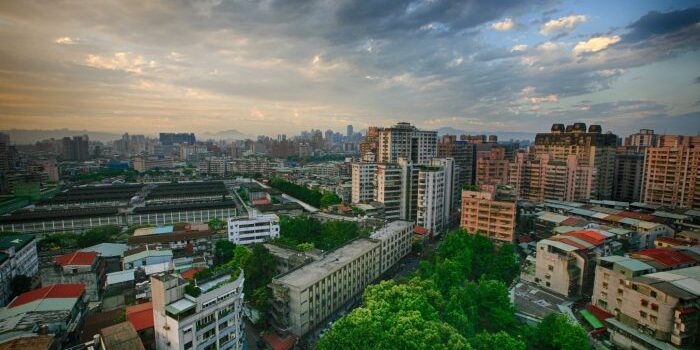MAPC
Smart Growth & Regional Collaboration
Green Municipal Aggregation
MAPC is committed to helping cities and town in the Commonwealth and the nation to develop green municipal aggregation programs that will truly reduce greenhouse gas emissions and fight climate change, as well as provide cost savings and price stability.
Municipal aggregation (also known as community choice aggregation) allows a city or town determine where its electricity comes from. In a municipal aggregation, a city or town contracts with an electricity supplier on behalf of residents and businesses who have not already selected a competitive supplier. Most residents and businesses currently get electricity supply, referred to as basic service, from their electric utility (e.g., National Grid or Eversource). Under state law, however, electric utility customers can choose an electricity supplier other than their utility, and the utility will continue to deliver the electricity, maintain poles and wires, and provide other customer services. Customers still receive a single electricity bill.
If your community is purchasing extra renewable energy, do you know where it's coming from and whether it's having an impact? Contact MAPC for assistance!
Jump To
Learn More About Our Work
Local energy & climate planning
Technical assistance
- Energy Storage and Resiliency
- Green Communities Support
- Green Municipal Aggregation
- Peak Demand Management
- Shared Energy Staffing Services
Collective Procurement
- Clean Vehicle Technologies
- Clean Heating and Cooling
- LED Streetlight Retrofits
- Solar Contracting & Best Practices
- Residential Energy Efficiency Outreach
Legislation & policy
How MAPC is Greening Aggregation
MAPC, working with the city of Melrose, developed the strategy that can help build new renewable energy, while still maintaining competitive prices and price stability.
Our solution: exceeding the state’s requirements for renewable energy from new projects that are built in our own region.
Due to the buying power of the aggregation, this 5% adds up across each community and across each aggregation. In total, the MAPC strategy effectively increases the state’s minimum requirement for new renewable energy, helping to build even more renewable generation in our region.


Goals of Aggregation
Typically, most aggregations in Massachusetts have pursued cost savings and price stability as primary goals. Aggregations can purchase for longer periods than the utility, providing more price stability. And aggregations can choose when to purchase, to take advantage of good market conditions.
Some aggregations have also set a goal of purchasing more renewable energy; however, these purchases were unlikely to lead to the construction of new renewable energy.
Community Electricity Aggregation Plus
Get Started!
From 2016-2018, MAPC operated the Community Electricity Aggregation PLUS program, which offered a competitively procured aggregation consultant to work with any of our member communities.
To form the program, MAPC, the City of Somerville and the Towns of Arlington and Sudbury participated in the selection process, and chose Good Energy, LP. 15 municipalities (see table) enrolled in the program.
With over four years of direct experience with green municipal aggregation, MAPC is available to help your community explore and authorize municipal aggregation and to assist in consultant selection.
Contact MAPC to find out how to get involved.
MAPC's Green Municipal Aggregation Toolkit
MAPC's Municipal Aggregation Toolkit outlines how to contract for increased renewable energy content through a green aggregation program.
Greening Our Grid: Melrose Success!
In January 2017, Melrose finished its first year of implementation of its green municipal aggregation program. Residents saved a total of $200,000 compared to the utility supply rate, and the community's impact could result in a 1-MW wind turbine being built in New England.
“Greening our Grid”, details MAPC’s new strategy to use green municipal aggregation to help build new renewable energy in New England. These materials will help cities and towns throughout the Commonwealth and the nation to develop green municipal aggregation programs that will truly reduce greenhouse gas emissions and fight climate change.
The fact sheet and case study explain how MAPC, working with the city of Melrose, developed the strategy that could help build new renewable energy, while still maintaining competitive prices and price stability.
The fact sheet also describes MAPC’s Community Electricity Aggregation PLUS program, designed to help our cities and towns implement aggregation with MAPC’s strategy for building new renewable energy. The program expands on MAPC’s portfolio of projects to assist our municipalities to reduce greenhouse gas emissions through renewable energy, energy efficiency and other clean energy strategies.
See our Fact Sheet and Case Study for details.
Fourteen cities and towns
Fifteen cities and towns from throughout our region are implementing green municipal aggregation with MAPC. All participants include an extra five percent MA Class I renewable energy in their primary electricity rate. Brookline includes 25 percent extra.
Municipality |
Active Since |
| Dedham | Summer 2015 |
| Arlington | Summer 2017 |
| Brookline | Summer 2017 |
| Somerville | Summer 2017 |
| Sudbury | Summer 2017 |
| Winchester | Summer 2017 |
| Hamilton | Winter 2018 |
| Gloucester | Winter 2018 |
| Stoneham | Spring 2019 |
| Bedford | Summer 2019 |
| Rockland | Summer 2019 |
| Melrose | Summer 2019 |
| Medford | Preparing to Launch |
| Millis | Preparing to Launch |
| Scituate | Preparing to Launch |
Resources
- MAPC’s Green Municipal Aggregation Toolkit (Updated Feb. 2020). Click here.
- List of Massachusetts municipalities implementing aggregation. Click here.
- Introduction to green municipal aggregation – A 30-minute round table discussion led by Carol Oldham, MCAN, with Patrick Roche, MAPC; Mark Sandeen, Sustainable Lexington; and Tommy Vitolo, Synapse Energy Economics. Watch here.


